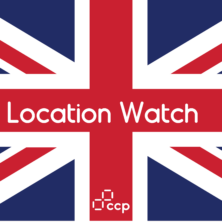
Ofgem’s research shows that there has been a “decline in overall consumer satisfaction with customer service by domestic energy suppliers since 2018”. And new research undertaken by Thinks Insight and Strategy this summer highlighted that there are practical and emotional barriers to consumers – especially the most vulnerable – getting the best service from their energy suppliers.
Ofgem’s Proposal
Ofgem’s proposal covers a wide range of areas, but those of most interest to us are in the consumer customer experience and contact centre space:
- Requiring energy supplier enquiry lines to stay open longer, including evenings and weekends – and be easier to contact via multiple methods such as email, webchat or other digital-based platforms;
- Enabling more effective support for customers struggling with bills, including early intervention to identify and offer support such as temporary repayment holidays when consumers are unable to pay;
- Prioritising customers in vulnerable situations, or their representatives, who may need immediate assistance;
- Making 24/7 emergency support available for customers who are cut off from their power or gas supply due to issues with their supplier (e.g. meter faults); AND
- Compelling suppliers to make information available on customer service performance to help inform consumer choice when switching, and further drive improvements in service.
Practically what does this mean?
[wptb id=29018]
An untimely Christmas present?
Ofgem intends to finalise the standards in October and have them in place by December. Of course, that’s about the most inconvenient time for energy firms, but perhaps the ideal time to put Ofgem’s ambitions to the test!
In any event, December is only 3 months away and whatever measures firms need to put in place – technology enhancements, increased internal resources or the use of outsourced support – will need to be initiated very soon.
What about the rest of us?
Of course, most of us don’t work in the energy sector, provide technology solutions or outsourced customer management services, so does this all matter?
Well, it does, because the regulated industries increasingly act as a ‘leading indicator’ for the wider economy. In terms of defining expected levels and standards of service (even if that doesn’t necessarily translate into those expectations being met). The financial services, energy and water sectors often now provide a customer template for others to follow.
If you’re supporting customers in the energy sector you might benefit from some help and support to meet the challenges presented by Ofgem’s new standards. Get in touch, we’d love to chat with you.




